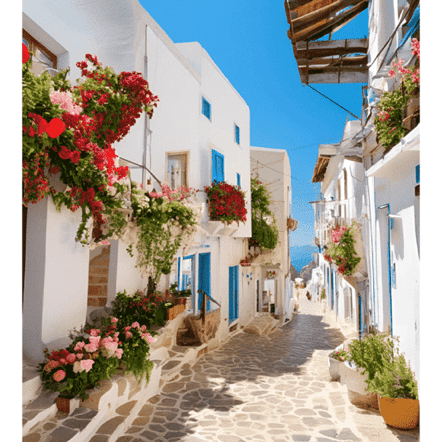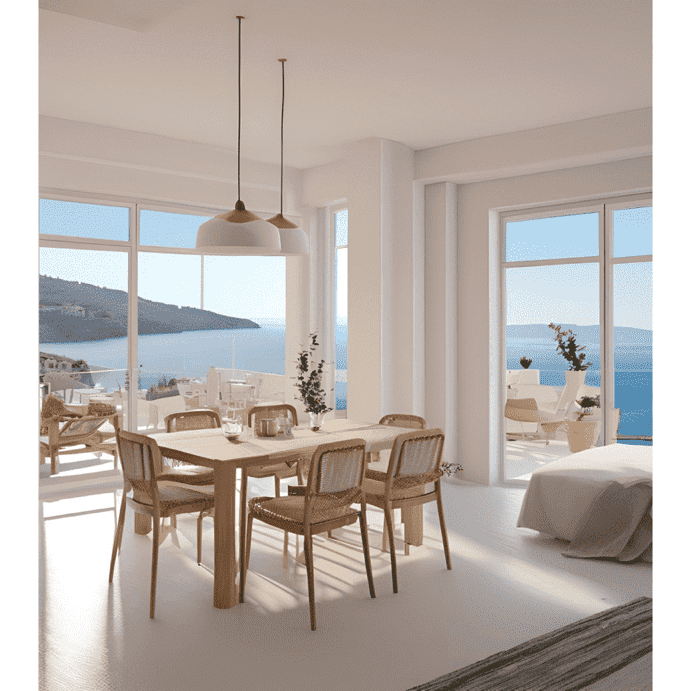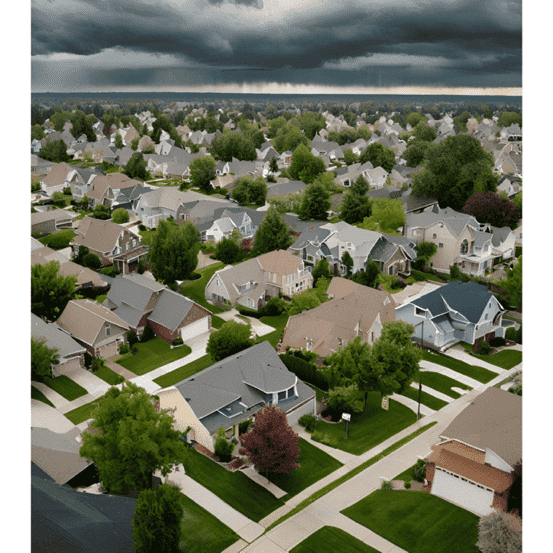Portugal Real Estate Prices Surge 9.1%: Homeownership Strain
Housing costs in Portugal rise 9.1%, complicating the dream of homeownership for many families. Discover the latest insights and trends.
The Portugal real estate market has been a topic of significant discussion and concern, particularly for families aspiring to own their homes. Despite a noticeable slowdown in the pace of price increases, the cost of housing continues to rise, presenting challenges for many. Recent data reveals that in August, house prices surged by 9.1% compared to the same month last year. This increase has pushed the median cost of purchasing a home to 2,722 euros per square meter (euros/m²), according to the Idealista price index.
Current Market Overview
The latest figures indicate a quarterly increase of 2.6% in the value of houses available for sale in Portugal. Over the past year, house prices have risen in 19 out of the 20 district capitals analyzed, highlighting a widespread trend of increasing housing costs across the country. Leading this upward trajectory are Ponta Delgada, with a remarkable 20% increase, followed by Leiria at 17.2%, and Portalegre at 15.4%.
Other notable cities experiencing significant price hikes include:
- Funchal: 14.4%
- Viseu: 10.4%
- Braga: 10.4%
- Bragança: 8.9%
- Castelo Branco: 8.4%
- Setúbal: 7.7%
- Guarda: 7.5%
- Porto: 7.2%
- Évora: 6.9%
- Vila Real: 6.8%
- Lisbon: 6%
- Coimbra: 5.8%
- Faro: 3.9%
- Beja: 3.4%
- Santarém: 3.1%
- Aveiro: 2.4%
Conversely, Viana do Castelo is the only district that saw a decline in housing prices, with a decrease of 1.2%.
The Most Expensive Cities
When examining the most expensive cities to purchase a home in Portugal, Lisbon remains at the forefront, with an astonishing average price of 5,634 euros/m². Following Lisbon are Porto and Funchal, with average prices of 3,639 euros/m² and 3,428 euros/m², respectively. Other cities with notable price points include:
- Faro: 2,976 euros/m²
- Aveiro: 2,556 euros/m²
- Setúbal: 2,466 euros/m²
- Évora: 2,182 euros/m²
- Ponta Delgada: 2,030 euros/m²
- Coimbra: 1,933 euros/m²
- Braga: 1,927 euros/m²
- Viana do Castelo: 1,869 euros/m²
- Leiria: 1,571 euros/m²
- Viseu: 1,500 euros/m²
- Vila Real: 1,320 euros/m²
Affordable Housing Options
While many cities are experiencing steep price increases, there are still areas where housing remains relatively affordable. The most budget-friendly cities include:
- Guarda: 802 euros/m²
- Portalegre: 838 euros/m²
- Castelo Branco: 864 euros/m²
- Beja: 977 euros/m²
- Bragança: 990 euros/m²
- Santarém: 1,201 euros/m²
These figures indicate that while the overall trend in Portugal is towards rising housing costs, there are still pockets of affordability that may provide opportunities for prospective homeowners.
Factors Influencing Price Increases
Several factors contribute to the ongoing rise in housing prices across Portugal. Economic growth, low-interest rates, and a surge in demand for properties, particularly in urban areas, have all played a role in driving prices upward. Additionally, the influx of foreign buyers seeking investment opportunities in Portugal has further intensified competition in the Portugal real estate market.
The COVID-19 pandemic has also influenced housing trends, with many individuals and families reassessing their living situations. Remote work has allowed people to consider properties outside major urban centers, leading to increased demand in previously overlooked areas.
The Future of the Housing Market
Looking ahead, the outlook for the Portugal real estate market remains uncertain. While some analysts predict that price increases may stabilize as interest rates rise and economic conditions fluctuate, others believe that the demand for housing will continue to outpace supply, keeping prices elevated.
Government policies aimed at increasing housing supply and affordability will be crucial in addressing the challenges faced by potential homeowners. Initiatives to promote construction and renovation of existing properties could help alleviate some of the pressure on the housing market.
The Portugal real estate market is currently characterized by rising prices, with significant increases observed across most district capitals. While cities like Lisbon, Porto, and Funchal dominate the list of the most expensive places to buy a home, there are still affordable options available in other regions. As the market continues to evolve, it will be essential for policymakers to implement strategies that promote housing affordability and accessibility for all families. The dream of homeownership remains a challenge for many, but with the right measures in place, it may become a more attainable goal in the future.
Portugal Real Estate Prices Surge 9.1%: Homeownership Strain
Greece: Europe’s Fourth Cheapest Real Estate Market
Greece: Europe’s Fourth Cheapest Real Estate Market
Explore why Greece stands out as one of Europe’s most economical real estate markets, attracting savvy investors seeking value and opportunity.

Surge in Scottish Home Sales: UK Real Estate Update
Surge in Scottish Home Sales: UK Real Estate Update
Scottish home sales and enquiries surged in October, with a third of surveyors reporting the fastest growth in years, signaling a vibrant market.

Spain: A Leading Market in European Real Estate
Spain: A Leading Market in European Real Estate
Explore how Spain is becoming one of Europe's most promising real estate markets, excelling in retail, logistics, and hotel sectors for strategic growth.

Greece Real Estate Market: Rise of Serviced Apartments
Greece Real Estate Market: Rise of Serviced Apartments
Explore the growing demand for serviced apartments in central Athens, where integrated hospitality services attract savvy investors in the Greece real estate market.

Home Prices Hit by Climate Change, J.P. Morgan Warns
Home Prices Hit by Climate Change, J.P. Morgan Warns
J.P. Morgan analysts reveal a negative link between climate risk and home price appreciation. Explore the emerging trends and their impact.


.PNG)